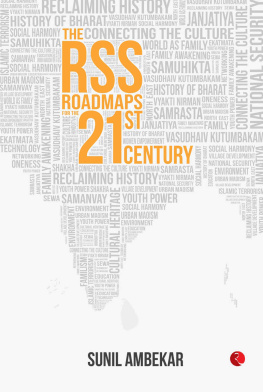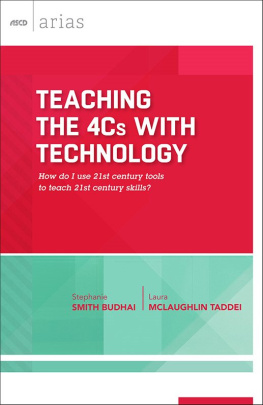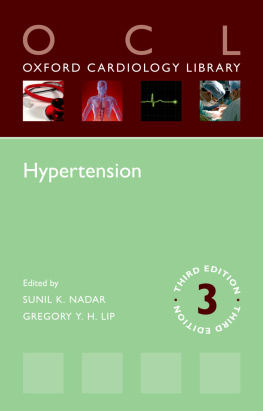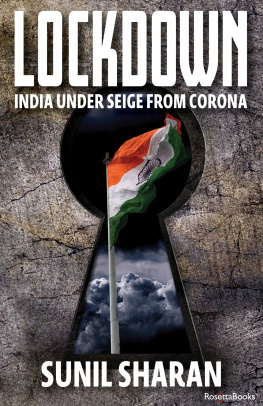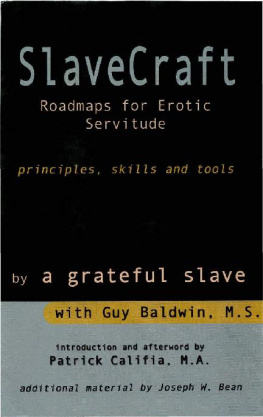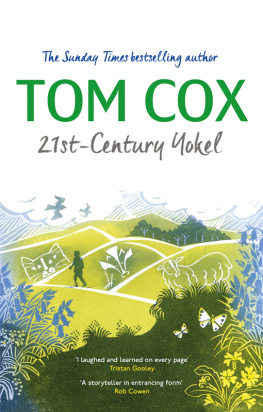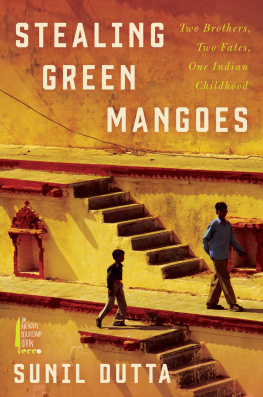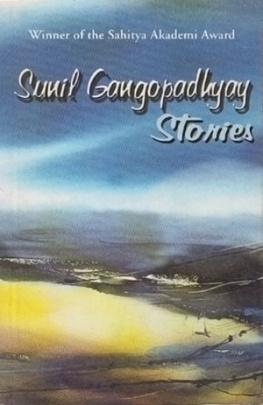Sunil Ambekar - The RSS: Roadmaps for the 21st Century
Here you can read online Sunil Ambekar - The RSS: Roadmaps for the 21st Century full text of the book (entire story) in english for free. Download pdf and epub, get meaning, cover and reviews about this ebook. year: 2019, genre: Religion. Description of the work, (preface) as well as reviews are available. Best literature library LitArk.com created for fans of good reading and offers a wide selection of genres:
Romance novel
Science fiction
Adventure
Detective
Science
History
Home and family
Prose
Art
Politics
Computer
Non-fiction
Religion
Business
Children
Humor
Choose a favorite category and find really read worthwhile books. Enjoy immersion in the world of imagination, feel the emotions of the characters or learn something new for yourself, make an fascinating discovery.
- Book:The RSS: Roadmaps for the 21st Century
- Author:
- Genre:
- Year:2019
- Rating:4 / 5
- Favourites:Add to favourites
- Your mark:
- 80
- 1
- 2
- 3
- 4
- 5
The RSS: Roadmaps for the 21st Century: summary, description and annotation
We offer to read an annotation, description, summary or preface (depends on what the author of the book "The RSS: Roadmaps for the 21st Century" wrote himself). If you haven't found the necessary information about the book — write in the comments, we will try to find it.
The RSS: Roadmaps for the 21st Century — read online for free the complete book (whole text) full work
Below is the text of the book, divided by pages. System saving the place of the last page read, allows you to conveniently read the book "The RSS: Roadmaps for the 21st Century" online for free, without having to search again every time where you left off. Put a bookmark, and you can go to the page where you finished reading at any time.
Font size:
Interval:
Bookmark:

Praise for the Book
The RSS has played an important role in the social, religious and economic life of India since its founding. Its attraction to Indians is based on its patriotism and nationalistic attitude. Despite being a large organization, the RSS is close-knit and opaque to outsiders. With this book on the RSS and its inner workings, Sunil Ambekar is opening a window to the world of the RSS and is bridging the Sanghs past with its potential future role in Indian society.
T.V. Mohandas Pai, Chairman, Aarin Capital Partners
As a spirited organization which is spread across the length and breadth of India, I wish that the RSS, through its shakhas, serves as a firewall to protect the most marginalized and vulnerable children of our country. I hope that the RSS sensitizes the youth towards a compassionate and inclusive world, which upholds the ethos of Sangachhadhwam and Vasudhaiva Kutumbakam.
Kailash Satyarthi, Nobel Peace Prize winner, 2014
We should not get judgemental about anything in life without knowing everything about it. This is also true about the Sangh, which is the most talked about subject in political and academic circles today. This book is a ready reckoner for anyone interested in the Sangh.
The RSS: Roadmaps For the 21st Century presents the Sangh from the perspective of the author who grew up knowing it as a swayamsevak. The book also talks about the Sanghs future plans.
Anand Kumar, Founder, Super 30

Published by
Rupa Publications India Pvt. Ltd 2019
7/16, Ansari Road, Daryaganj
New Delhi 110002
Copyright Sunil Ambekar 2019
The views and opinions expressed in this book are the authors own and the facts are as reported by him which have been verified to the extent possible, and the publishers are not in any way liable for the same.
All rights reserved.
No part of this publication may be reproduced, transmitted, or stored in a retrieval system, in any form or by any means, electronic, mechanical, photocopying, recording or otherwise, without the prior permission of the publisher.
ISBN: 978-93-5333-685-1
First impression 2019
10 9 8 7 6 5 4 3 2 1
The moral right of the author has been asserted.
This book is sold subject to the condition that it shall not, by way of trade or otherwise, be lent, resold, hired out, or otherwise circulated, without the publishers prior consent, in any form of binding or cover other than that in which it is published.
CONTENTS
INTRODUCTION
THE STORY OF INDIA'S FUTURE
In 2007, when India completed sixty years of independence, a question arose in my mind. What will be the state of our nation in 2047, the year in which our country will celebrate its 100 years of independence from colonial rule. As a long-standing volunteer or swayamsevak of the Rashtriya Swayamsevak Sangh (RSS)a social organizationand a full-time RSS pracharak or one inspired by the mission, working with the Akhil Bharatiya Vidyarthi Parishad (ABVP)the largest student organization in terms of membership and university unitsthe obvious question before me was: what would be the relevance of the RSS in the same time period?
After deliberating with RSS functionaries, the common answer I could gather was that India would continue to march on its mission as a Vishwa Guru, or World Teacher, to provide knowledge and direction to the world, while the Sangh would become indistinguishable from Indian society. The merger of the Sangh and Indian society would be as complete as the mixing of sugar in milk and just as the milk when stirred displays the characteristics of sugar, Indian society as a whole would start exhibiting the traits of the Sangh. So, the Sangh would become coterminous with all of Indian society and the need for it to exist as a distinct entity would be obviated.
SANGH SAMAJ BANEGA
The Sangh does not want to be a separate power ruling over society; it wants to strengthen society, so that it can handle its issues constructively. To use a metaphor, just as the mighty rivers fall into oceans and have no separate existence, the Sanghs complete union with society is conceived as the ultimate goal. Sangh Samaj Banega is a slogan, referring to the merging of Sangh with society, which is raised repeatedly in the RSS to reinforce this goal when Sangh and society become one.
The rise of India as a Vishwa Guru is another question that needs to be deciphered. That is why when I was approached with the idea of writing a book on the RSS for the twenty-first century, I grabbed the opportunity with eagerness.
This book is about the process through which the Sangh is recontextualizing age-old civilizational thoughts in an ever-changing, contemporary society. As one of the most prominent ideologues of the RSS, Pandit Deendayal Upadhyaya once said, From the past, through the present, to the future. Sanghs 94-year-old journey, now into the future, is narrated in this book.
This is a practitioners bookan insiders account. My association with the RSS dates back to my childhood. It was a natural occurrence. In Nagpur, my family home is next to the RSS headquarters, Hedgewar Bhawan, also known as the Sangh building. The doors of my home open onto the RSS grounds. The Sangh was a part of my daily life. I regularly attended the shakhathe fundamental unit of the RSS and the place where all swayamsevaks assemble daily/weekly as per schedule, where we received instructions and performed physical drills and played games. During holidays, the Sangh premises became a playground for us schoolgoing children.
Mohite Shakha was the shakha of Hedgewar Bhawan. Each shakha has a name and it is usually named after the locality where it is held or after some great personalities. Mohite was the name of the locality and it was also the surname of the original owner of the land. Shakhas conducted in the evening were predicated with shyam (evening).
A network of a vast number of shakas, the primary unit, around the country, constitute the RSS. Shakhas or daily meetings are held in the morning and evening. There are night shakhas for workers to accommodate their factory shifts.
I became a swayamsevak of Mohite Shyam, named thus because it was an evening shakha. The schedule of the shakha became my clock. After attending it, I would go home and busy myself with homework. I would continue till I heared the bell concluding the music or ghosh of the Ghosh Shakha, which imparted training in playing specific musical instruments used in the shakha. The Ghosh group, meaning a music band, played instrumental music and followed our shakha. Only after the gong would go off for this shakha would dinner be served at my home. It was a settled family routine.
So, the Sangh, shakha, getting to know friends thereall of it became a part of my growing-up experience, almost in an organic manner. There are no membership drives or formal initiations in the Sangh. The day one starts going to the shakha, one becomes a swayamsevak. There are no formal initiations. Whoever wants can become a swayamsevak whenever. Thus, it is difficult for me to pinpoint the precise time I became a swayamsevak. As I grew up and began to understand the teachings of the Sangh, I consciously made efforts to become a good swayamsevak and progressed on that path.
Important functionaries, despite their busy schedules, would give us their attention and time. They would narrate to us real life stories of great people who served India and her people. They introduced me to shlokas, or verses, in Sanskrit. We went for picnics and winter camps. It taught me self-discipline and self-management. Critical life skills were thus acquired easily in a natural setting. I was a science student and I found the work ethics of the Sangh logical and scientific.
Next pageFont size:
Interval:
Bookmark:
Similar books «The RSS: Roadmaps for the 21st Century»
Look at similar books to The RSS: Roadmaps for the 21st Century. We have selected literature similar in name and meaning in the hope of providing readers with more options to find new, interesting, not yet read works.
Discussion, reviews of the book The RSS: Roadmaps for the 21st Century and just readers' own opinions. Leave your comments, write what you think about the work, its meaning or the main characters. Specify what exactly you liked and what you didn't like, and why you think so.

